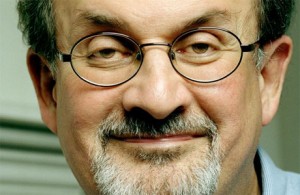You have no items in your cart. Want to get some nice things?
Go shoppingTechnology is a wonderful, sometimes baffling thing: nowadays, you can pause live television, store up to 23,700 photos on a tiny memory card and send an email from your mobile phone that can travel across the world in the blink of an eye. The literary world, too, hasn’t escaped the technological revolution. The future for publishing, writing and reading has been transformed by the rise of the e-books and the e-readers. In January 2011, Amazon.com announced that their e-book sales had surpassed their paperback sales and demand for this new literary technology is rapidly growing, particularly in the USA, but also now in Europe and the UK.
The trick with technology, though, is that it is always changing: no sooner has one incredible gadget been made available to the public, then a second, a third, even a fourth generation device is already being developed and manufactured. The e-book is no different – although its popularity is a fairly recent development, experts are even now redesigning the original prototype, adding innovative new features.
Amongst the latest e-book developments that the literary world must brace itself for, is the introduction of music and sound effects. The company behind the idea, Booktrack, have big plans for some of literature’s most cherished classics such as Jane Eyre, Huckleberry Finn, and Pride and Prejudice, which will see them ‘enhanced’ with noises that match the descriptions in the book – the patter of raindrops falling on a stormy night, the splash of the waves in a seafaring adventure or a maniacal laugh in the middle of grisly crime-thriller.

Developers at Booktrack explain that the software will be able to time how quickly each reader completes a page, so that the noises can be played at just the right moment. It’s the timing, here, that’s key. It distinguishes these literary soundtracks from traditional audiobooks and, undoubtedly, if the timing is wrong, the results could be disastrous: the sound of a gunshot going off too early before the reader has reached the relevant passage could ruin the story entirely. Booktrack reassures readers, however, that there is nothing to fear, asserting that their technology is so clever, it can even tell if you’ve paused your reading for a spot of lunch or sped up if you’ve got a deadline to meet. And, if that wasn’t enough, they’re pushing the boundaries even further and introducing not only real-life sound effects but full musical playlists: reports suggest that Salman Rushdie intends to release a brand new e-book that comes with a complete orchestral score to accompany it.
So what’s the point of these soundtracks? Well, I’ve already used the word enhance and that is exactly what Booktrack intends to do – enhance your imagination and overall enjoyment by using sounds to create a unique reading space, giving the reader an opportunity to immerse themselves in literature. Sounds idyllic to me, but is it really going to live up to the hype? Are these soundtracks the beginning of a beautiful new future where noises and words live in perfect harmony or are they going to ruin the blissful escapism reading creates with mindless, ceaseless babble?
Personally I’m curious, but sceptical. It seems like an interesting idea; one that I think could adapt very well to children’s literature and perhaps even revive flagging interest in books with today’s younger readership. Children might well enjoy the Horrid Henry series with added crashes and bangs, or Diary of a Wimpy Kid with extra playground noises. As for Booktrack’s plans to tamper with the classics – some of my favourite novels amongst them – I am less than thrilled. Books like The Adventures of Sherlock Holmes, Moby Dick and Peter Pan have been read and enjoyed for decades without the need for ‘real-life’ sounds over the top. I can’t help thinking that an orchestral score, no matter how ‘especially-crafted’ it may be, could end up being very distracting.
Frankly, it all seems a bit pointless. If I want a violin to accompany my reading, I’ll put the radio on. One only needs to pick up the latest issue of Litro to see that there is still plenty of imagination and ingenuity out there – we all of us have enough creativity to be able to imagine the sound of raindrops, without having some tinny e-book to make the noises for us. Call me old-fashioned, but for this blogger, silence is still golden.




